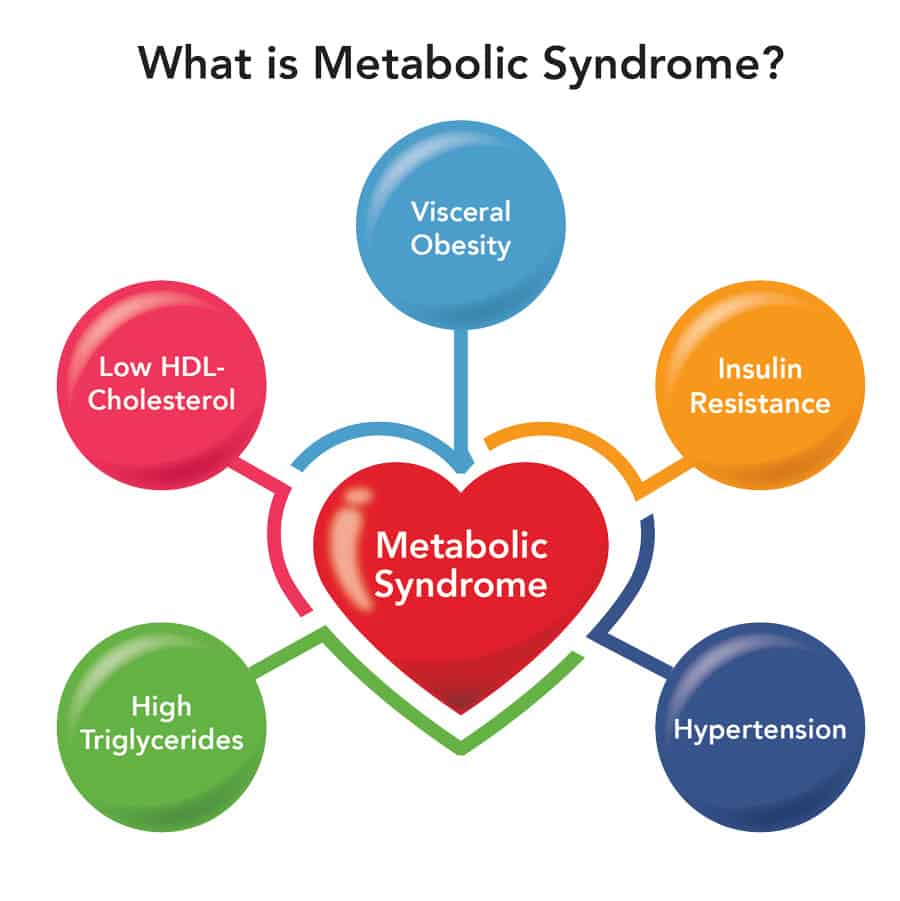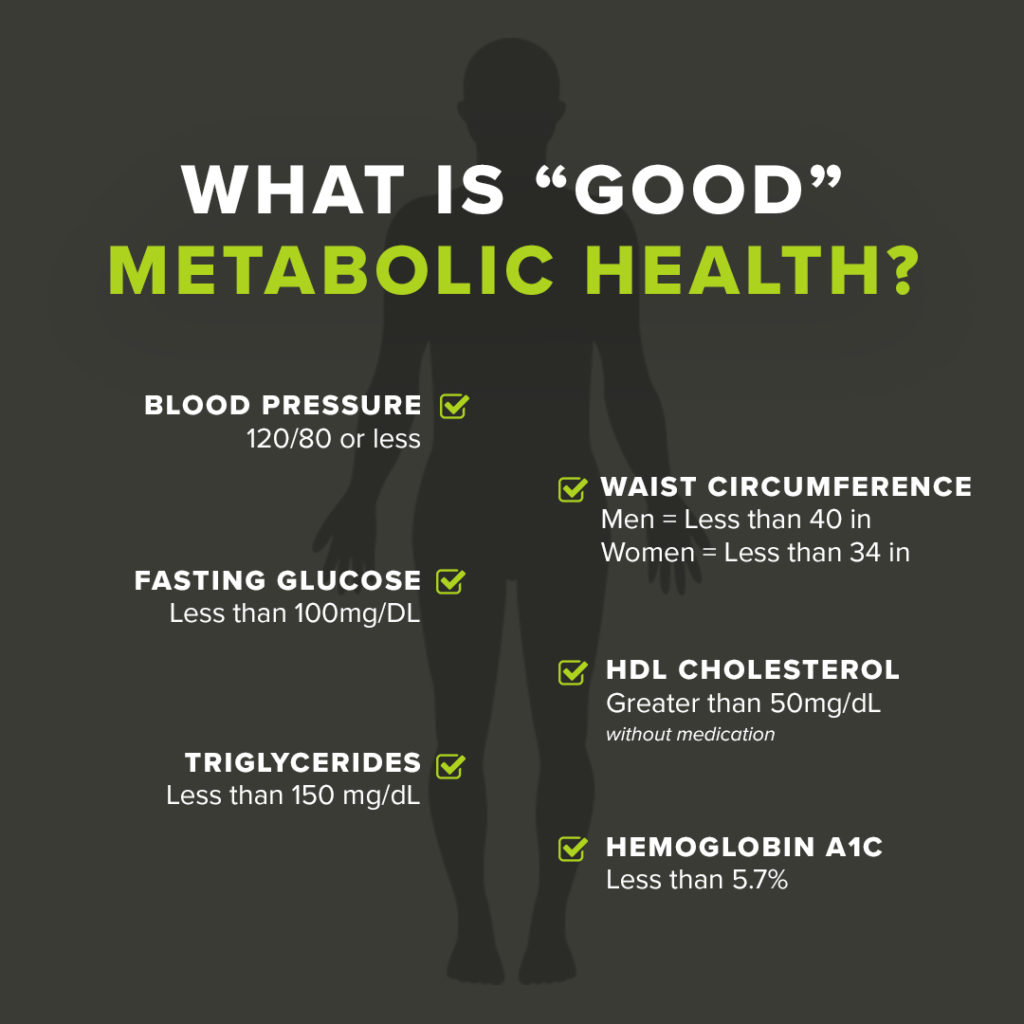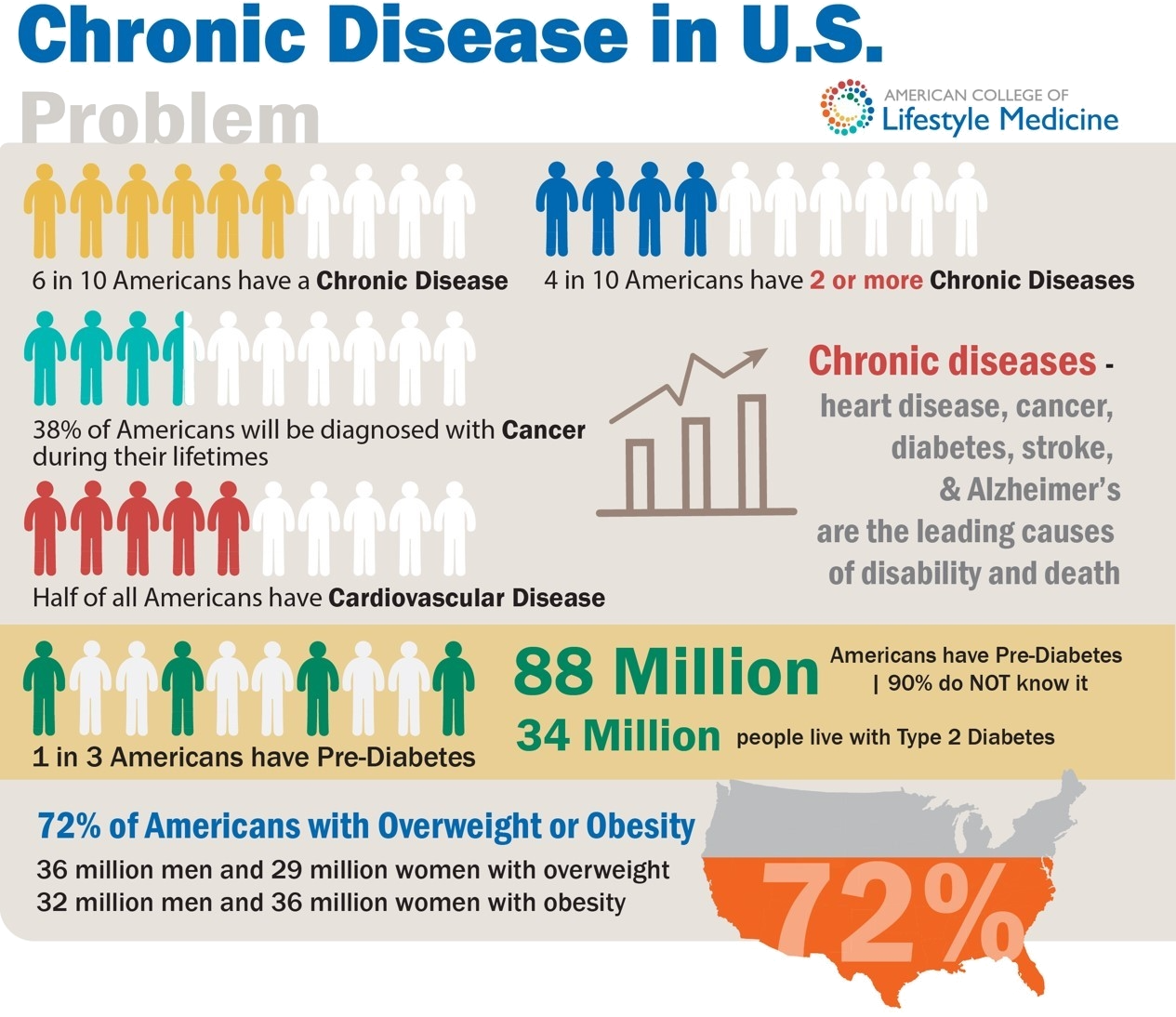What is Metabolic Syndrome?
Metabolic syndrome is also known as insulin resistance syndrome. Metabolic syndrome is a group of risk factors for heart disease, diabetes, and other health problems. Insulin resistance is a condition that's closely linked to metabolic syndrome. In people with insulin resistance, cells don't respond normally to insulin, which can lead to higher blood sugar levels.
 Metabolic Syndrome is a cluster of conditions that occur together, increasing your risk of heart disease, stroke, and type 2 diabetes. These conditions include increased blood pressure, high blood sugar, excess body fat around the waist, and abnormal cholesterol or triglyceride levels.
Metabolic Syndrome is a cluster of conditions that occur together, increasing your risk of heart disease, stroke, and type 2 diabetes. These conditions include increased blood pressure, high blood sugar, excess body fat around the waist, and abnormal cholesterol or triglyceride levels.
Components of Metabolic Syndrome
To be diagnosed with Metabolic Syndrome, you need to have at least three of the following five criteria:
- High Blood Pressure: A blood pressure reading of 130/85 mmHg or higher, or being on medication to treat high blood pressure.
- High Blood Sugar: Fasting blood glucose levels of 100 mg/dL or higher, or being on medication to treat high blood sugar.
- Excess Body Fat Around the Waist: A waist circumference of 40 inches or more for men, and 35 inches or more for women.
- High Triglycerides: Triglyceride levels of 150 mg/dL or higher, or being on medication to treat high triglycerides.
- Low HDL Cholesterol: HDL cholesterol levels of less than 40 mg/dL in men, and less than 50 mg/dL in women, or being on medication to treat low HDL cholesterol.
Risk Factors
The risk of developing Metabolic Syndrome increases with age, and it is more common in people who are overweight or obese. Other risk factors include a sedentary lifestyle, a diet high in fats and sugars, and a family history of diabetes or cardiovascular disease.
Why is Metabolic Syndrome Important?
Having Metabolic Syndrome significantly increases your risk of developing serious health problems, including cardiovascular disease and type 2 diabetes. Early detection and management are crucial to reducing these risks.

What is Metabolic Health?
Metabolic health refers to how well your body generates and processes energy at the cellular level. It's a crucial aspect of overall well-being, influencing your risk for chronic diseases such as heart disease, diabetes, and stroke.
Key Components of Metabolic Health
- Blood Sugar Levels: Stable blood sugar levels are essential for preventing diabetes and maintaining consistent energy throughout the day.
- Cholesterol Levels: Balanced levels of HDL (good cholesterol) and LDL (bad cholesterol) are vital for cardiovascular health.
- Blood Pressure: Optimal blood pressure reduces the risk of heart disease and stroke.
- Waist-to-Height Ratio: This ratio helps assess body fat distribution, with a lower ratio indicating a healthier body composition.
- Triglycerides: Lower levels of triglycerides in the blood reduce the risk of cardiovascular disease.
Importance of Metabolic Health
Maintaining good metabolic health is essential for:
- Preventing Chronic Diseases: Proper metabolic function helps prevent conditions like type 2 diabetes, heart disease, and metabolic syndrome.
- Enhancing Quality of Life: Good metabolic health leads to better energy levels, improved mood, and overall better physical health.
- Longevity: Healthy metabolism can contribute to a longer, healthier life by reducing the risk of serious health complications.
How to Improve Metabolic Health
- Healthy Eating: Focus on a balanced diet rich in whole foods, vegetables, lean proteins, and healthy fats. Low carb, high fat diets or Nutritional Ketosis can be particularly effective.
- Regular Exercise: Physical activity helps maintain a healthy weight, improves cardiovascular health, and enhances insulin sensitivity.
- Adequate Sleep: Quality sleep is crucial for metabolic health as it helps regulate hormones and reduce stress.
- Stress Management: Chronic stress can negatively impact metabolic health. Techniques like mindfulness, meditation, and regular physical activity can help manage stress.
- Regular Health Check-ups: Monitoring key health markers through regular check-ups helps in early detection and management of potential issues.
Conclusion
Understanding and maintaining good metabolic health is fundamental to preventing chronic diseases and enhancing overall well-being. By focusing on lifestyle changes such as a balanced diet, regular exercise, and stress management, you can significantly improve your metabolic health and quality of life.









 Metabolic Syndrome is a cluster of conditions that occur together, increasing your risk of heart disease, stroke, and type 2 diabetes. These conditions include increased blood pressure, high blood sugar, excess body fat around the waist, and abnormal cholesterol or triglyceride levels.
Metabolic Syndrome is a cluster of conditions that occur together, increasing your risk of heart disease, stroke, and type 2 diabetes. These conditions include increased blood pressure, high blood sugar, excess body fat around the waist, and abnormal cholesterol or triglyceride levels.
